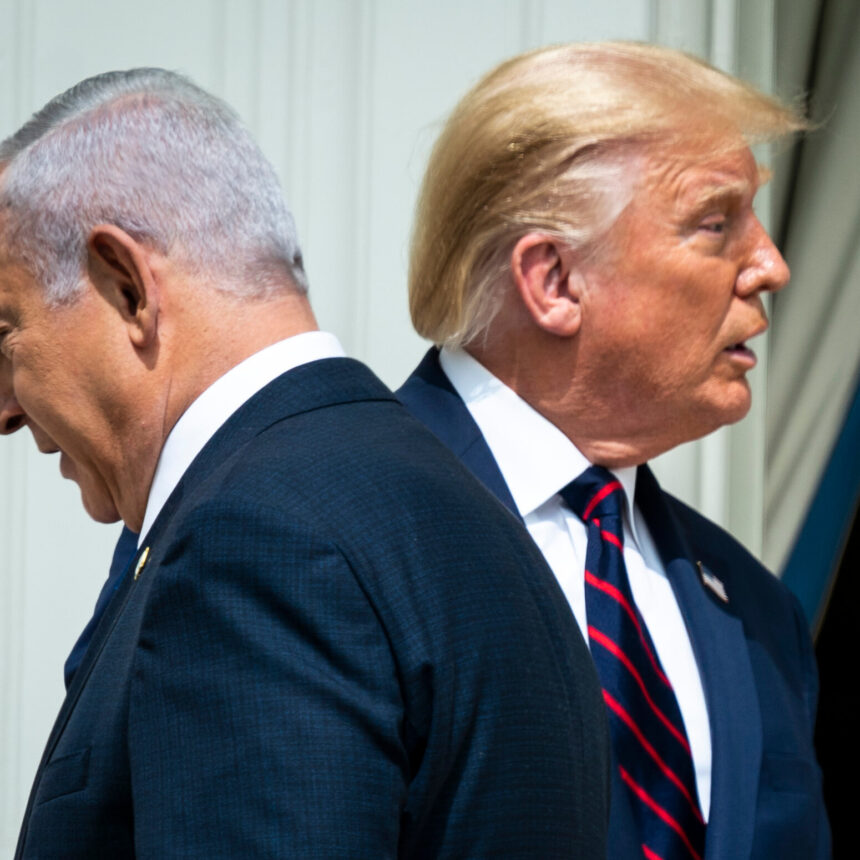Summary by Geopolist | Istanbul Center for Geopolitics
The article “How Donald Trump Can Make Israel a Better U.S. Partner” discusses the challenges and potential strategies for President Donald Trump to enhance the U.S.-Israel alliance during his upcoming term. It highlights the concept of “moral hazard,” where Israel’s confidence in unwavering U.S. support may lead to actions that complicate American foreign policy objectives, particularly in the Middle East. The article suggests that introducing strategic ambiguity into the alliance could temper Israeli actions, ensuring they align more closely with U.S. interests, especially concerning the expansion of the Abraham Accords and regional stability.
Read the full article below.
How Donald Trump Can Make Israel a Better U.S. Partner
When President Donald Trump returns to the White House, most expect he’ll give Israel a long leash to do as it sees fit in the Middle East. However, that expectation could be tested and might prove to be wrong altogether. It is clear enough that Trump cannot stand it when allies defy him the way Israel has defied President Joe Biden on bringing about a ceasefire and a hostage deal since October 7, 2023. Furthermore, if Tel Aviv’s ongoing regional aggression embarrasses Trump by scuttling his ambitious plans to bring peace to the Middle East, Trump’s frustrations will likely boil over into a bid to reign Israel in.
The big question, then, is: how can he do that? The answer lies in changing the structure of the U.S.-Israeli alliance, namely by making it more ambiguous. A strategically ambiguous alliance will benefit both Israel and the United States. It will ensure Israeli defenses against regional foes, temper Israeli adventurism, and provide the foundation for expanding the Abraham Accords, which Trump is especially keen to do.
A phenomenon that political scientists call “moral hazard” lies at the heart of the troubles that Trump (like Biden) is almost certain to face with Israel. Moral hazard tends to emerge when a great power makes a robust security pledge to a revisionist ally, meaning a state that is desperate to fix its security problems and/or alter the prevailing security order. Protection by the great power shields the ally from the consequences of its actions, making it more risk-acceptant and less responsive to the great power’s demands. On the hook to bail out the ally when trouble comes, the great power finds that its security costs rise to unsustainable levels.
Since October 7, 2023, moral hazard has left Washington at the mercy of its junior partner, Israel. Backed by Washington’s “ironclad” security commitment to Israel and massive supplies of U.S. weapons, Israeli leaders openly boast about manipulating the United States. “The U.S. has our back,” Netanyahu said confidently in July. Resting on that assurance, Israel has largely ignored Washington as it has barreled forward, repeatedly undercutting the kinds of efforts at peace Trump wants to see in the Middle East. According to one expert, Israel is telling Washington that the war in Gaza will end “on our terms and timeline. Not yours.”
The record bears this out. In early July, Biden pressed Netanyahu to negotiate. Tel Aviv instead hardened its negotiating terms, launched airstrikes in Lebanon and Gaza, and assassinated Hamas’s political leader, Ismail Haniyeh.
The same story prevailed in September and October. Biden pushed a “take it or leave it” ceasefire. Israel rejected it and then dramatically expanded the war through pager strikes in Lebanon and the killing of Hezbollah leader Hassan Nasrallah. Getting Israeli cooperation is “like pulling teeth,” said one U.S. official.
The price tag for Israeli moral hazard has been high. Since October 7, the United States has spent $26 billion defending Israel; strains on U.S. weapons stockpiles have grown due to historic levels of shipments to Israel; and three U.S. service members have died, with another 183 injured.
Israel’s gains against Hamas, Hezbollah, and Iran have emboldened Israel in ways that could scuttle Trump’s plans for de-escalating regional conflicts and reducing U.S. security costs. In fact, Trump’s election appears set to make Israel’s moral hazard worse, not better. Israeli leaders anticipate Trump “will support their country unconditionally,” a belief reinforced by the pro-Israel bent of Trump appointees. Despite Trump saying he wants a Gaza ceasefire before inauguration day, Israel helped kill ceasefire talks just after Trump’s election and seems largely unchanged in its position on current negotiations. Likewise, Israel’s post-Assad invasion of Syria belies Trump’s stated wishes that Syrians work out their future alone, without outside interference.
If moral hazard remains a problem going forward, Trump should do what Biden lacked the foresight or courage to do and add strategic ambiguity to the partnership with Israel. This would start by replacing the “ironclad” commitment with an explicit pledge whereby the United States “reserves the right,” as with Taiwan, to defend Israel at Washington’s choosing on a case-by-case basis. Also, as with Taiwan, Trump could pare back the supply of offensive military hardware to Israel and send mostly defensive supplies instead (Washington is Israel’s main arms supplier). A progressive drawdown of U.S. forces sent to protect Israel would help signal ambiguity, too.
Some might call this abandonment. It’s not. The United States never abandoned Taiwan with its policy of strategic ambiguity. Taiwan remains a close U.S. partner in Asia and has been shielded by U.S. power from Chinese attacks for more than seven decades. The same would go for Israel in the Middle East.
Ambiguity will help reduce moral hazards (as in the past with Taiwan) by making Israel bear, or think it will bear, more of the costs of its own security. Consequently, Israel will need to take diplomacy more seriously, giving Trump more leverage to de-escalate conflict and shift attention away from the Middle East. With bigger problems elsewhere in Asia, this course is what U.S. interests dictate.
By: C. William “Will” Walldorf, Jr. – an Associate Professor and Shivley Family Faculty Fellow at Wake Forest University, as well as a Non-Resident Fellow at Defense Priorities. He is the author most recently of To Shape Our World For Good: Master Narratives and Regime Change in U.S. Foreign Policy, 1900-2011. Will is currently writing a book titled America’s Forever Wars: Why So Long, Why End Now, What Comes Next that, among other things, develops a comprehensive model for over-the-horizon counterterrorism for the current era.
Source: nationalinterest.org







